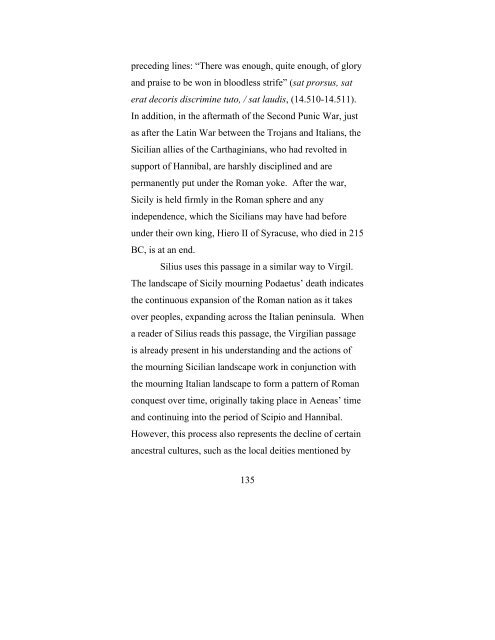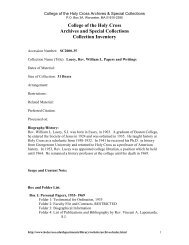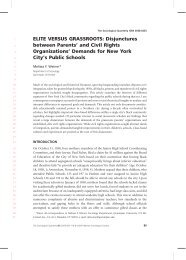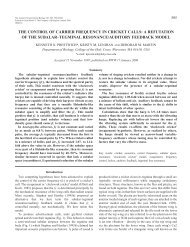Here - Academics - College of the Holy Cross
Here - Academics - College of the Holy Cross
Here - Academics - College of the Holy Cross
You also want an ePaper? Increase the reach of your titles
YUMPU automatically turns print PDFs into web optimized ePapers that Google loves.
preceding lines: “There was enough, quite enough, <strong>of</strong> glory<br />
and praise to be won in bloodless strife” (sat prorsus, sat<br />
erat decoris discrimine tuto, / sat laudis, (14.510-14.511).<br />
In addition, in <strong>the</strong> aftermath <strong>of</strong> <strong>the</strong> Second Punic War, just<br />
as after <strong>the</strong> Latin War between <strong>the</strong> Trojans and Italians, <strong>the</strong><br />
Sicilian allies <strong>of</strong> <strong>the</strong> Carthaginians, who had revolted in<br />
support <strong>of</strong> Hannibal, are harshly disciplined and are<br />
permanently put under <strong>the</strong> Roman yoke. After <strong>the</strong> war,<br />
Sicily is held firmly in <strong>the</strong> Roman sphere and any<br />
independence, which <strong>the</strong> Sicilians may have had before<br />
under <strong>the</strong>ir own king, Hiero II <strong>of</strong> Syracuse, who died in 215<br />
BC, is at an end.<br />
Silius uses this passage in a similar way to Virgil.<br />
The landscape <strong>of</strong> Sicily mourning Podaetus’ death indicates<br />
<strong>the</strong> continuous expansion <strong>of</strong> <strong>the</strong> Roman nation as it takes<br />
over peoples, expanding across <strong>the</strong> Italian peninsula. When<br />
a reader <strong>of</strong> Silius reads this passage, <strong>the</strong> Virgilian passage<br />
is already present in his understanding and <strong>the</strong> actions <strong>of</strong><br />
<strong>the</strong> mourning Sicilian landscape work in conjunction with<br />
<strong>the</strong> mourning Italian landscape to form a pattern <strong>of</strong> Roman<br />
conquest over time, originally taking place in Aeneas’ time<br />
and continuing into <strong>the</strong> period <strong>of</strong> Scipio and Hannibal.<br />
However, this process also represents <strong>the</strong> decline <strong>of</strong> certain<br />
ancestral cultures, such as <strong>the</strong> local deities mentioned by<br />
135
















